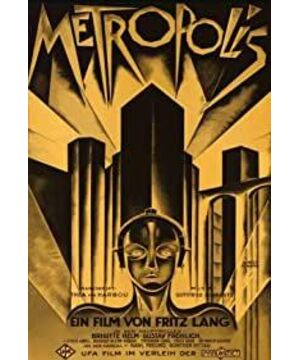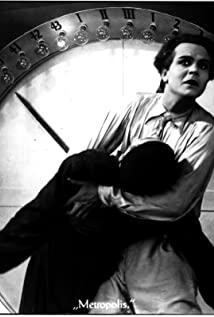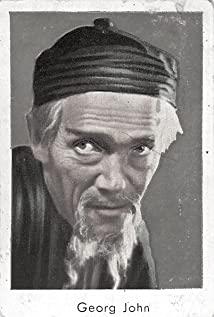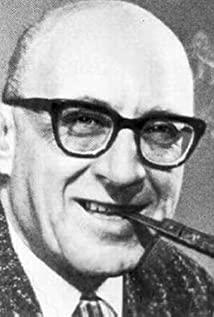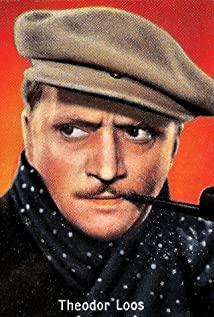Perhaps because of the influence of "seeing problems through the lens of class" since childhood, many people seem to like to talk about class issues in movies, and then use the lens of class analysis to measure movies. I'm not saying this method is not desirable, but Saying we shouldn't be limited in this way. Because no matter for the judgment of any work of art, this kind of analysis can easily make one's thinking fall into the narrowness and arbitraryness of dualism. In Metropolis, there are indeed two distinct classes, the carefree bourgeoisie, who live a luxurious life, and the working class, who work day and night to dwell at the bottom. However, the two classes were not absolutely antagonistic to begin with, and I greatly appreciate Fritz Lang's refraining from adopting a binary class narrative. This film neither looks at the problem from the perspective of the proletariat, nor from the perspective of the real estate, but a young master who is in the ranks of the bourgeoisie but always stands with the proletariat, and another bit, she is in the proletariat, but has been trying to reconcile with the bourgeoisie. Therefore, if it weren't for the whims of the paranoid scientist, this riot might not have happened at all, because the director first established two classes that are not completely opposite, and two mediators in different classes. Moreover, if used as an example of class narrative, "Metropolis" may not have such breadth and complexity. The film does not use a simple binary opposition to narrate, but endows the characters with a human side, that dictator-like, The father who controls the lifeline of the entire city, the Virgin Mary who may have another "witch" form, and the crazy and paranoid scientist... They have their own emotions, not driven by pure opposition. But the problem is also here. The emotions of the characters in the movie are still limited to reasonable emotions. The love of the young master is really the most romantic emotion that all of us can have for a person in our fantasy, and Maria's kindness is close to divine kindness, and she is unswerving in her own kindness, never doubting the use of this kindness... All in all, maybe it's a common problem of old movies, the characters can't really get close to the audience , but only the existence in fantasy, the endowed human nature is not the human nature in real life, because the human nature in life is contradictory, and the human nature in the movie is extremely reasonable. So apart from class, how should we look at the two types of life shown in "Metropolis"? The answer comes from the subtitles at the beginning and end of the movie - "The reconciler between the brain and the hand must be the heart." Rather than saying that "Metropolis" presents a class contradiction in the future society, it is better to say that it is a fable Sexual riddle, and this riddle is precisely related to "brain", "heart" and "hand". In the film, the brain is the highest level represented by Fredersen, and the hands are the broadest—thousands of workers living in the underground city. The brain must be in a completely safe position and rested, and the hands need to work almost 24 hours a day to keep the whole body functioning. In the prologue of the film, the contradiction between the brain and the hand is not intense, the brain is complacent that it can control the hand and can completely control the old guy, so Frederson almost lives in a functional order, but the brain does not fully understand the hand , to be precise, when the hands are being treated unfairly and continue to provide blood and oxygen to this huge body, the brain continues to use the hands excessively. Therefore, the hand chooses to seek new solace. What it needs is spiritual satisfaction, and the hand also needs the brain, but the hand is always the hand, and the hand cannot really connect to its own brain. At this time, Maria and Freder appeared. They were more like messengers from the hand and the brain. Their arrival meant that between the brain and the hand, a new emotion was about to emerge. This emotion is not sympathy, nor is it by any means. A begging for reconciliation, but a connection for the body to function properly. Then a new system will arise between the brain and the hand, which will promote the renewal of the organism, and under the premise of mutual understanding. Only the heart can do this, why must it be the heart? Because the heart leads to the soul, and the souls of all things have similarities. When the end workers rioted, what they had in mind was not some kind of broad, or long-term concept, but their families, their children, which is why, when they heard the news that the underground city was flooded The first thing they think of is the child. And even Frederson, who was squeezing workers, was thinking about the life and death of his son Freder when he faced the end. This is what the souls of the two have in common, and to achieve this understanding, it must be done through the "heart". Therefore, I can say that when Frederson shook hands with the chief worker, it was by no means a compromise between the two sides. Concession is the understanding and understanding between the brain and the hand. After this, the body returns to a state of order that is stronger and stronger than before. The answer to the riddle is naturally the connection. The invaluable thing about this connection is that it was formed after a near-apocalyptic disaster. Interestingly, if we use the point of view of class analysis, then the "brain" and "hand" must be opposed in advance, and this opposition point of view just cannot prove the existence of "heart". The happy ending in the movie is naturally impossible to form in reality. As mentioned above, the setting of the movie cannot be close to reality in every aspect, otherwise, it will become a sad tool for reproduction. As audiences, it is natural for us to retain a little imagination left by children, because movies are imagination, and "Metropolis" nearly 100 years ago is an excellent embodiment of the magnificent imagination of mankind. In fact, associating a film with an ideology or a concept is nothing more than the result of our many years of mechanical training. Yes, movies can indeed be used as a powerful propaganda tool, but at the same time, let's not forget that what it originally represented was "dream", the other side that we can never reach, from the ever-rising and eternal. The never-ending ladder and ascension... If you have to fight for right or wrong in the movie because of the temperament formed by habit, it will be too old and too narrow.
View more about Metropolis reviews


